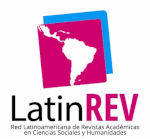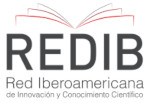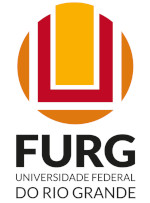Chamada para Submissão de Artigos: Dossiê “História das petições e das práticas peticionárias" (2026/2)
O presente dossiê da Revista Brasileira de História & Ciências Sociais se propõe a receber artigos que tenham como objeto e/ou fonte de pesquisas as petições/requerimentos, sejam elas enviadas ao executivo, legislativo ou judiciário de realidades políticas liberais e contemporâneas ou, ainda, à determinadas instâncias e governantes da administração de estados absolutistas, incluindo o próprio rei. Procura-se, assim, dar visibilidade a uma área de pesquisa que vem nos últimos anos ganhando força e que cruza com temáticas muito amplas dentro e fora da realidade brasileira. Interessa nesse dossiê pensar e refletir sobre as tipologias de petições, assuntos, agentes envolvidos, políticas peticionárias ou de “direito à petição”, seus diferentes usos, ou, ainda, como o seu exercício hoje permite o mapeamento do ganho de força ou debilitamento de determinadas matrizes discursivas, a exemplo do alçamento da matriz discursiva moderno-liberal. No cenário brasileiro dos últimos anos se tem observado estudos importantes sobre o mecanismo e a ação peticionária no contexto da Independência do Brasil, ou do estabelecimento das constituintes, momento em que a petição passou a ser um direito constitucional longa e extensamente utilizado por amplos setores da sociedade brasileira, incluindo os mais baixos cidadãos imperiais, a saber, os encarcerados. Por isso serão bem recebidos propostas de artigos que coloquem de manifesto a transição desta prática do Antigo Regime às novas formas de governo liberais, mas também anteriores a ela, quando o ato de peticionar detinha outros sentidos e compreensões dentro de uma lógica política e de exercício de poder mais limitados, mas não totalmente ausentes, como aquele das sociedades estamentais e de antigo regime. O dossiê abre espaço portanto para uma temporalidade e espacialidade de experiências peticionárias bastante amplas, podendo abranger realidades para além das brasileiras, luso-brasileiras ou ibéricas, uma vez que a prática poderá ser seguida e analisada dentro de um cenário perfeitamente global.
Organizadores do Dossiê
Prof. Dr. Tiago da Silva Cesar – Universidade Federal de Pernambuco - Brasil
Profa. Dra. Renata Silva Fernandes – Universidade Federal de Goiás - Brasil
Data limite para submissão 04/10/2026
Saiba mais sobre Chamada para Submissão de Artigos: Dossiê “História das petições e das práticas peticionárias" (2026/2)












